Choosing the Right Drill Bit for Metal Working: A Comprehensive Guide

Drilling holes in metal can be a challenging task, especially if you don’t have the right tools. One of the most important tools for metalworking is the drill bit. However, with so many different types of drill bits available on the market, it can be difficult to choose the right one for your specific needs. This comprehensive guide will help you understand the different types of drill bits and their uses, so you can make an informed decision.
When it comes to drilling through metal, the most common type of drill bit is the twist bit. These drill bits have a spiral shape and are designed to cut through metal with ease. However, there are several variations of twist bits, including high-speed steel (HSS) twist bits, cobalt twist bits, and titanium twist bits. Each type of twist bit is suited for different materials and applications. For example, HSS twist bits are great for general purpose drilling, while cobalt twist bits are better suited for drilling through tough metals like stainless steel.
Another type of drill bit commonly used for metalworking is the step bit. Step bits have a cone-like shape with multiple steps or increments that allow you to drill holes of different sizes. These bits are great for enlarging existing holes or creating holes of varying diameters. Step bits are typically made of high-speed steel and are suitable for drilling through thin metal sheets.
For drilling holes in hard metals like cast iron or hardened steel, carbide drill bits are your best bet. These bits are made of tungsten carbide, which is one of the hardest materials used in drill bits. Carbide drill bits are extremely durable and can withstand high temperatures, making them ideal for drilling through tough materials. However, they are also more expensive than other types of drill bits.
By understanding the different types of drill bits available for metalworking and their specific uses, you can ensure that you choose the right drill bit for your project. Whether you’re drilling through thin metal sheets or tackling tough materials, there’s a drill bit out there that’s perfect for the job. So, before you start your next metalworking project, take the time to consider which drill bit will give you the best results.
Types of Drill Bits for Metal Working
1. Twist Drill Bits
Twist drill bits are the most common type of drill bits used for metal working. They have a cylindrical shank with a spiral flute that allows the chips to be removed from the hole as the bit rotates. Twist drill bits come in various sizes and are suitable for drilling holes in soft to medium-hard metals.
2. Step Drill Bits
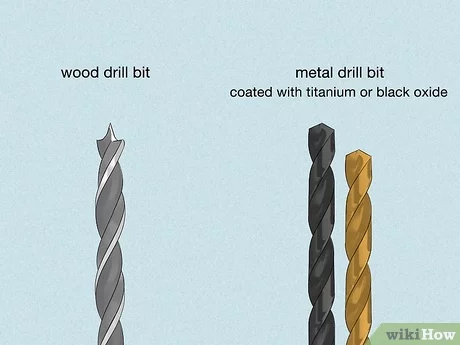
Step drill bits, also known as cone drill bits or unibits, have multiple cutting edges that allow them to create holes with different diameters. These bits are commonly used for deburring, chamfering, and enlarging existing holes in metal sheets or plates.
3. Countersink Drill Bits
Countersink drill bits are designed to create a conical hole that allows a screw head to sit flush with the surface of the metal. These bits often come with adjustable depth settings to match the size of the screw and the desired depth of the countersink.
4. Hole Saw Drill Bits
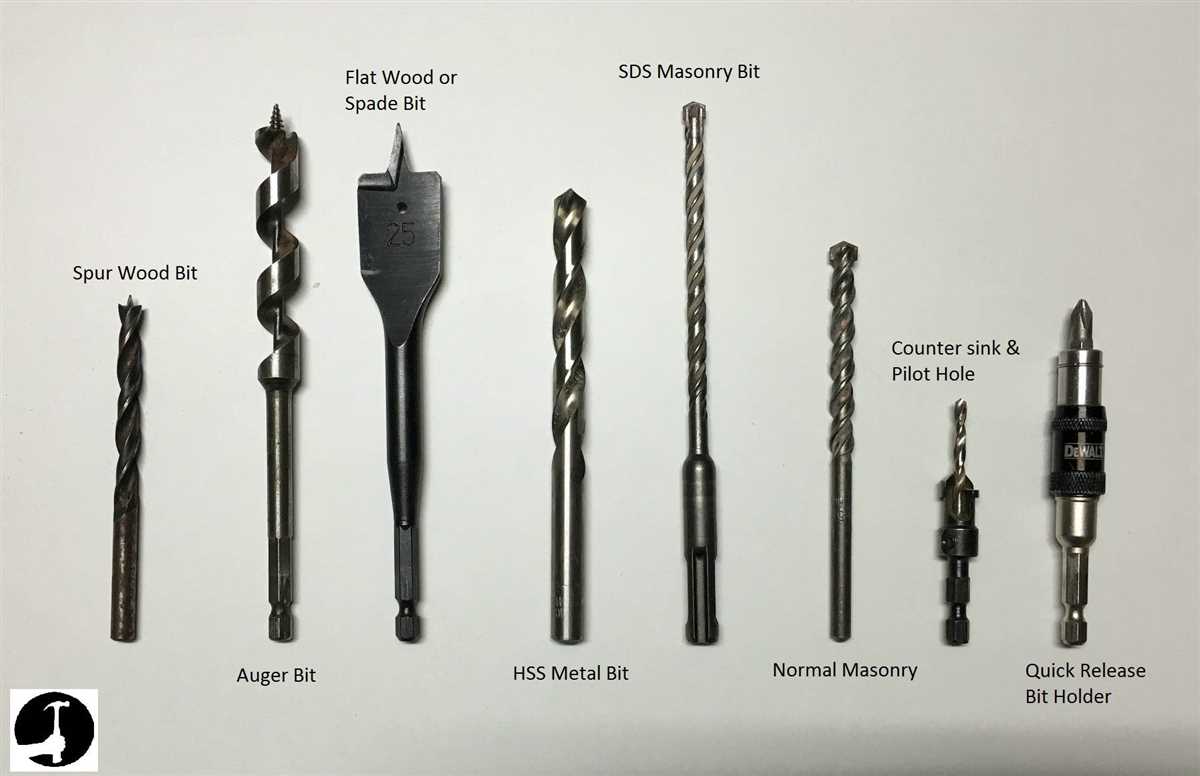
Hole saw drill bits are used to create large-diameter holes in metal. They consist of a cylindrical pilot bit with a serrated edge that cuts into the metal, surrounded by a circular blade with teeth. Hole saws are frequently used for installing hardware or creating openings for pipes or wires.
5. Carbide Drill Bits
Carbide drill bits are made from carbide, a hard and durable material that can withstand high heat and friction. These bits are ideal for drilling through hard metals, such as stainless steel, cast iron, or titanium. Carbide drill bits usually have a black or gold-colored coating to increase their heat resistance.
6. Cobalt Drill Bits
Cobalt drill bits are made from high-speed steel alloyed with cobalt. The cobalt content increases the bits’ heat resistance and durability, making them suitable for drilling through tough metals, such as stainless steel and hardened steel. Cobalt drill bits can often be identified by their gold-colored finish.
7. Titanium Drill Bits
Titanium drill bits are made from high-speed steel coated with a layer of titanium nitride. The titanium coating adds hardness and reduces friction, allowing these bits to drill through metal faster and with less heat. Titanium drill bits are suitable for drilling through various types of metal, including aluminum, brass, and copper.
8. Diamond Drill Bits
Diamond drill bits are used for drilling holes in hard materials, such as glass, ceramics, or stone. These bits have a hollow core that is filled with diamond particles, which provide the cutting edges. Diamond drill bits can also be used for drilling through certain types of metal, such as porcelain-coated steel or hardened steel.
| Type | Materials | Applications |
|---|---|---|
| Twist Drill Bits | Soft to medium-hard metals | General drilling |
| Step Drill Bits | Metal sheets or plates | Deburring, chamfering, enlarging holes |
| Countersink Drill Bits | Metal surfaces | Creating a conical hole for screw heads |
| Hole Saw Drill Bits | Metal, wood, plastic | Creating large-diameter holes |
| Carbide Drill Bits | Hard metals (stainless steel, cast iron) | Drilling through hard metals |
| Cobalt Drill Bits | Tough metals (stainless steel, hardened steel) | Drilling through tough metals |
| Titanium Drill Bits | Various metals (aluminum, brass, copper) | Fast and efficient drilling |
| Diamond Drill Bits | Hard materials (glass, ceramics, stone) | Drilling through hard materials |
High-Speed Steel (HSS) Drill Bits
High-speed steel (HSS) drill bits are a popular choice for metalworking due to their durability, versatility, and cost-effectiveness. These drill bits are made from a special type of steel that has been hardened to withstand high temperatures and provide excellent cutting performance.
Here are some key features and benefits of using HSS drill bits:
- Durability: HSS drill bits are known for their durability and can withstand high-speed drilling without becoming dull or overheating. This makes them ideal for drilling through tough metals such as stainless steel or hardened steel.
- Versatility: HSS drill bits can be used to drill a wide range of materials, including metal, wood, plastic, and composite materials. This makes them a versatile choice for various applications, especially in general metalworking.
- Cost-effectiveness: Compared to other types of drill bits, HSS drill bits are relatively affordable and readily available. This makes them a cost-effective option for both professional metalworkers and DIY enthusiasts.
HSS drill bits come in various sizes and shapes to suit different drilling needs. They typically have a cylindrical shank and a pointed tip, designed to create clean and precise holes in metal surfaces.
Choosing the Right HSS Drill Bit
When selecting an HSS drill bit for your metalworking project, consider the following factors:

- Drill Size: Choose a drill bit size that matches the diameter of the hole you want to create. HSS drill bits are available in a wide range of sizes, so picking the right size is essential for achieving the desired hole dimensions.
- Coating: Some HSS drill bits come with a coating, such as titanium nitride (TiN) or black oxide, which improves their durability and helps reduce friction. Coated drill bits are ideal for drilling through hard metals.
- Point Angle: Consider the point angle of the drill bit, as it affects the drilling speed and accuracy. A smaller point angle (e.g., 118 degrees) is suitable for drilling through softer materials, while a larger point angle (e.g., 135 degrees) is better for drilling through harder materials.
It’s important to use the proper drilling technique when using HSS drill bits to avoid overheating and premature dulling. Remember to apply cutting fluid or lubricant to cool the drill bit and ensure smooth drilling.
| Advantages | Disadvantages |
|---|---|
|
|
Overall, HSS drill bits are a reliable and affordable choice for metalworking projects. With proper maintenance and usage, they can deliver excellent drilling performance and help you achieve accurate and clean holes in various metal materials.
Cobalt Drill Bits
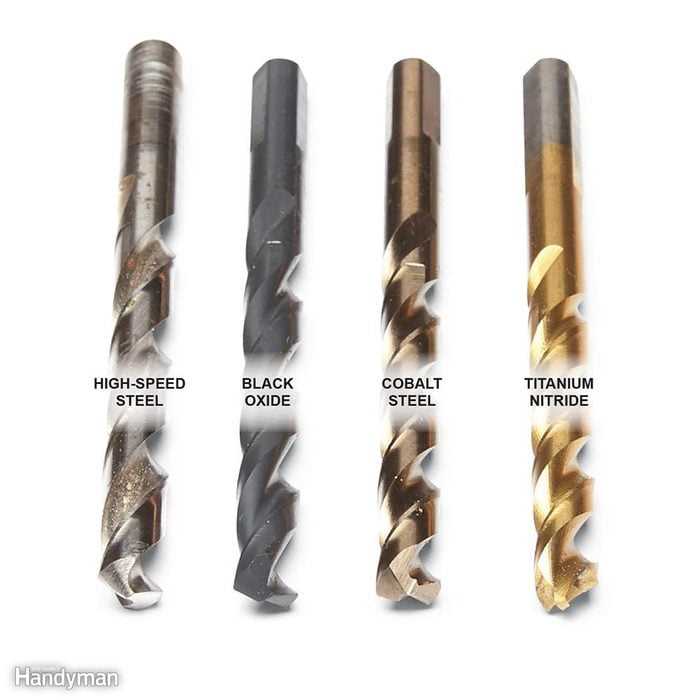
Cobalt drill bits are a popular choice for metal working due to their exceptional durability and heat resistance. These bits are made from a combination of cobalt and steel, which gives them the hardness and strength needed to effectively drill through tough metals.
Advantages of Cobalt Drill Bits
1. Hardness: Cobalt drill bits are extremely hard, making them ideal for drilling through hard metals like stainless steel and cast iron. Their hardness allows them to maintain their sharpness and effectiveness for a longer period of time.

2. Heat resistance: Cobalt drill bits have a high melting point, which allows them to withstand the heat generated during the drilling process. This heat resistance helps to prevent the bits from becoming dull or brittle, ensuring they last longer and provide consistent performance.
3. Versatility: These drill bits can be used for a variety of metal working applications, making them a versatile tool to have in your toolbox. Whether you’re working on a small DIY project or a large industrial job, cobalt drill bits can get the job done.
Choosing the Right Cobalt Drill Bit
When selecting a cobalt drill bit, there are a few factors to consider:
- Size: Choose a drill bit size that matches the diameter of the hole you need to create. Cobalt drill bits are available in a range of sizes, so be sure to select the one that best suits your needs.
- Coating: Some cobalt drill bits have a coating, such as titanium or black oxide, which can further enhance their performance and durability. Consider choosing a coated cobalt drill bit for added protection and improved cutting performance.
- Shank: The shank of the drill bit is the part that fits into the drill’s chuck. Make sure the shank size matches the chuck size of your drill to ensure a secure and stable connection.
Care and Maintenance
To ensure the longevity and performance of your cobalt drill bits, it’s important to take proper care of them:
- Cooling: When drilling through metal, it’s recommended to use a lubricant or coolant to keep the temperature down. This helps prevent the drill bit from overheating and becoming damaged.
- Sharpening: Over time, cobalt drill bits may become dull. To maintain their effectiveness, use a sharpening tool designed specifically for cobalt drill bits to restore their sharpness.
- Storage: Store your cobalt drill bits in a dry and secure place to prevent rusting or damage. Consider using a drill bit case or organizer to keep them organized and easily accessible.
By choosing the right cobalt drill bit for your metal working needs and properly maintaining them, you can ensure they continue to deliver reliable performance and longevity.
Carbide Drill Bits
Carbide drill bits are a popular choice for metal working due to their durability and ability to maintain their cutting ability over time. These drill bits are made from carbide, which is a composite material composed of a combination of tungsten carbide particles and a binding agent. This combination results in a drill bit that is extremely hard and resistant to wear, making it ideal for drilling through tough materials like metal.
There are several advantages to using carbide drill bits for metal working:
- High-temperature resistance: Carbide drill bits can withstand high temperatures generated during the drilling process without losing their cutting ability. This makes them suitable for drilling through heat-treated metals and other materials that generate a lot of heat.
- High hardness: Carbide is one of the hardest materials used in drill bit manufacturing, which allows carbide drill bits to maintain their sharp cutting edges for longer periods of time compared to other types of drill bits.
- Resistance to abrasion: Carbide drill bits are more resistant to wear and tear compared to traditional high-speed steel drill bits. They can handle the high friction and abrasion encountered when drilling through metal, which helps prolong the lifespan of the drill bit.
When using carbide drill bits for metal working, it’s important to keep in mind a few considerations:
- Proper lubrication: Using cutting oil or coolant during the drilling process is essential when using carbide drill bits. This helps reduce heat and prolong the life of the drill bit by preventing it from overheating.
- Correct feed rate: Carbide drill bits require a slower feed rate compared to other types of drill bits. This allows for optimal chip removal and prevents the drill bit from becoming overloaded.
- Pre-drilling: When drilling through hard metals, it may be necessary to pre-drill a smaller pilot hole using a different type of drill bit before using a carbide drill bit. This helps prevent the carbide drill bit from becoming excessively worn or damaged.
Overall, carbide drill bits are a reliable and efficient choice for metal working. Their durability, high-temperature resistance, and resistance to abrasion make them well-suited for drilling through tough materials. By following the proper drilling techniques and maintenance practices, carbide drill bits can provide long-lasting performance and precision.
Factors to Consider When Choosing a Drill Bit
When it comes to choosing a drill bit for metal working, there are several factors that should be taken into consideration. These factors can greatly affect the performance and efficiency of the drilling process, as well as the quality of the finished product. In this section, we will discuss some important factors that you should consider when selecting a drill bit.
1. Drill Bit Material
One of the most important factors to consider when choosing a drill bit is the material it is made of. Drill bits for metal working are typically made of high-speed steel (HSS), cobalt, or carbide. HSS drill bits are suitable for drilling through soft metals, while cobalt drill bits are better suited for harder metals. Carbide drill bits, on the other hand, are extremely hard and are mainly used for drilling through thick and tough metals.
2. Drill Bit Size
The size of the drill bit is another important consideration. The size of the hole you need to drill will determine the size of the drill bit you should choose. Drill bits are usually measured in fractions of an inch or in millimeters. It is important to select a drill bit that is the right size for the hole you need to drill to achieve the desired result.
3. Drill Bit Coating
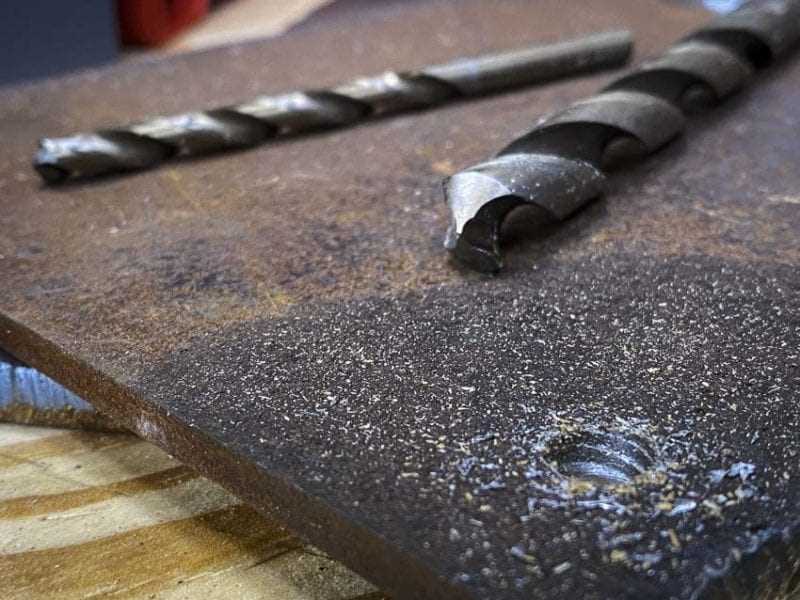
Drill bits can also come with various coatings that can improve their performance and durability. Some common coatings include black oxide, titanium nitride, and cobalt. These coatings can help reduce friction, increase hardness, and improve chip evacuation, resulting in faster and more effective drilling.
4. Drill Bit Point Angle
The point angle of the drill bit refers to the angle between the cutting edges of the bit. Different materials require different point angles for optimal performance. For example, softer metals may require a larger point angle, while harder metals may require a smaller point angle. Choosing the right point angle can help prevent the drill bit from wandering and ensure accurate drilling.
5. Speed and Feed Rates
The speed and feed rates at which you run the drill can greatly affect the performance of the drill bit. It is important to match the speed and feed rates to the material you are drilling and the type of drill bit you are using. Running the drill too fast or using excessive force can cause the drill bit to overheat, wear out quickly, or even break.
6. Project Requirements
Finally, it is important to consider the specific requirements of your project when choosing a drill bit. Factors such as the type of metal being drilled, the thickness of the metal, and the accuracy required will all play a role in determining the best drill bit for the job. Consulting with experts or doing research on the specific project requirements can help ensure you select the right drill bit.
| Factors | Description |
|---|---|
| Drill Bit Material | Determines the suitability for different types of metals. |
| Drill Bit Size | Match the size of the bit to the desired hole size. |
| Drill Bit Coating | Coatings can improve performance and durability. |
| Drill Bit Point Angle | The angle affects accuracy and prevents wandering. |
| Speed and Feed Rates | Match the speed and feed rates to the material and bit. |
| Project Requirements | Consider specific project needs and consult experts. |
Material of the Metal
When it comes to choosing the right drill bit for metal working, one important factor to consider is the material of the metal you will be drilling into. Different metals have different hardness levels and properties, which can affect the performance and effectiveness of the drill bit.
1. Steel
Steel is one of the most common metals used in various industries. It is known for its strength and durability. When drilling into steel, it is important to use a drill bit made from high-speed steel (HSS) or cobalt. These types of drill bits are designed to withstand the hardness of steel and provide efficient cutting.
- HSS Drill Bits: High-speed steel drill bits are made from a combination of carbon steel and other elements like chromium, tungsten, or vanadium. They are ideal for drilling into softer steel materials.
- Cobalt Drill Bits: Cobalt drill bits, as the name suggests, contain cobalt as an alloying element. They are known for their high heat resistance and are specifically designed for drilling into hardened steel or stainless steel.
2. Aluminum
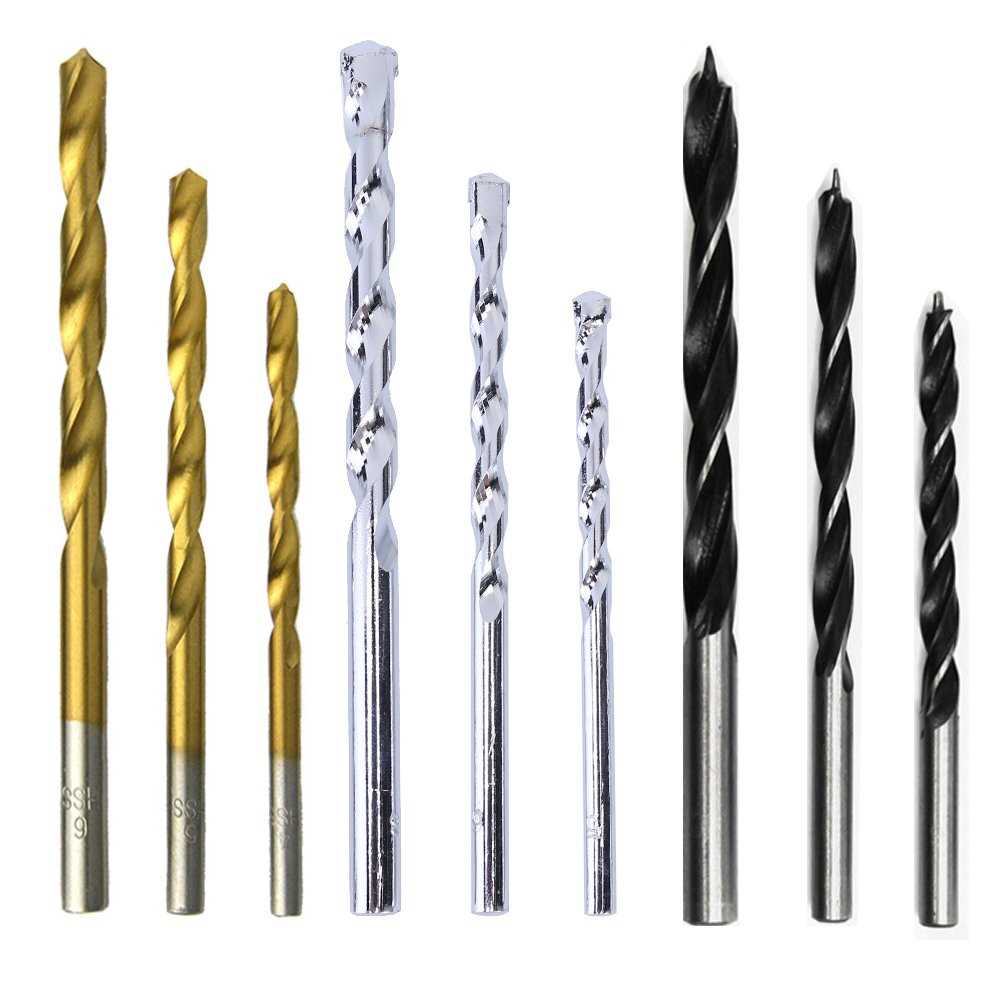
Aluminum is a lightweight metal with excellent corrosion resistance. When drilling into aluminum, it is recommended to use high-speed steel (HSS) or carbide drill bits. These drill bits are specifically designed to cut through aluminum efficiently.
- HSS Drill Bits: HSS drill bits are commonly used for drilling into aluminum as they have a good balance of hardness and toughness. They can effectively remove chips and provide a smooth finish.
- Carbide Drill Bits: Carbide drill bits are made from a combination of tungsten carbide and cobalt. They are extremely hard and can provide high-speed drilling in aluminum with minimal wear and tear.
3. Stainless Steel
Stainless steel is a popular metal choice in industries where corrosion resistance is crucial. However, drilling into stainless steel can be challenging due to its hardness. To effectively drill into stainless steel, it is recommended to use cobalt or carbide drill bits.
- Cobalt Drill Bits: Cobalt drill bits are ideal for drilling into stainless steel as they can withstand high temperatures and have excellent wear resistance. They can provide precise and clean holes in stainless steel.
- Carbide Drill Bits: Carbide drill bits are also suitable for stainless steel drilling. They have a high hardness level and can maintain their cutting edge for a longer time, ensuring efficient drilling in stainless steel.
4. Other Metals
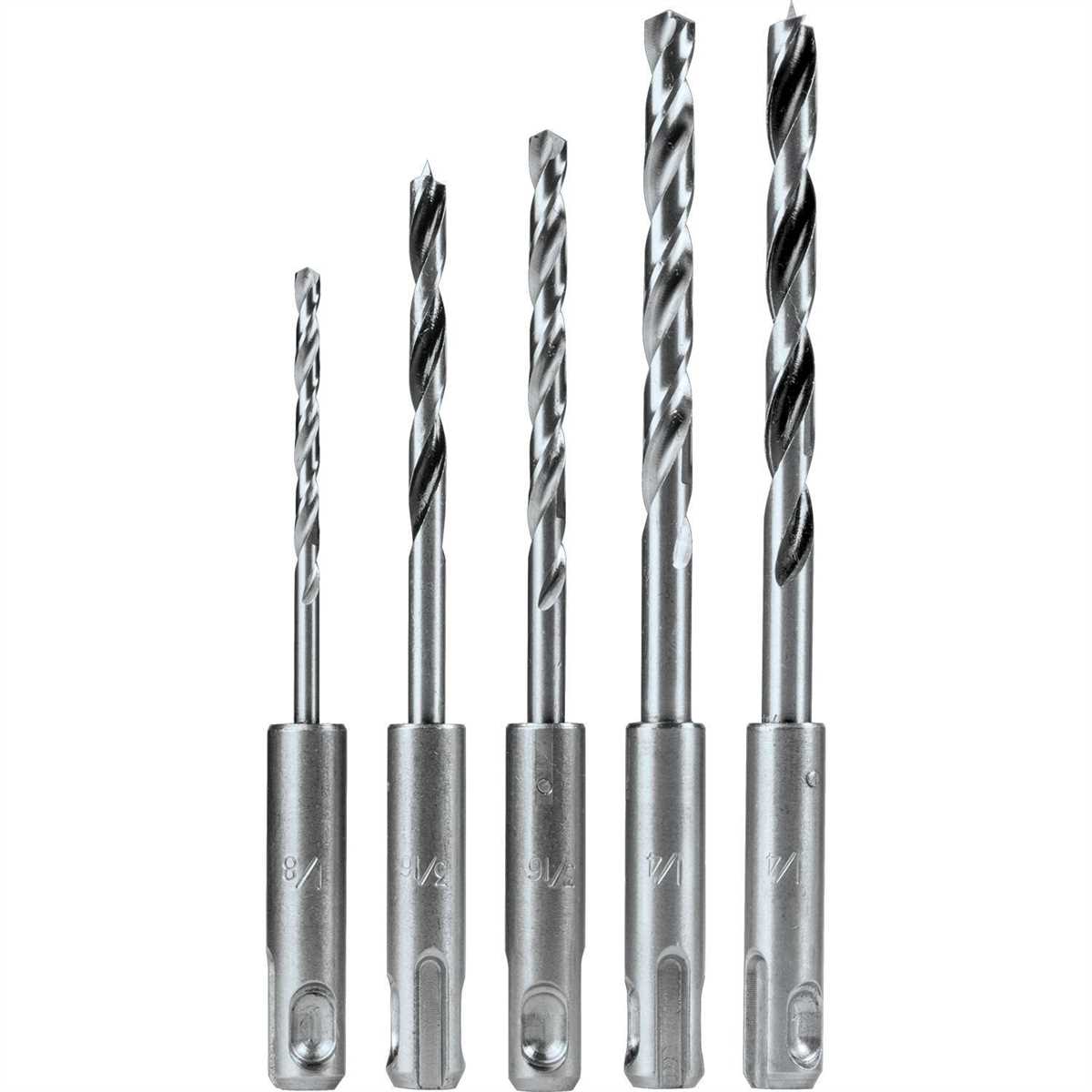
There are various other metals like brass, copper, bronze, and cast iron that may require specific drill bits for effective drilling. In general, HSS drill bits or cobalt drill bits can work well for drilling into these metals.
- HSS Drill Bits: HSS drill bits are versatile and can handle many different types of metals. They are a good choice for drilling into softer metals like brass, copper, and bronze.
- Cobalt Drill Bits: Cobalt drill bits can also be used for drilling into these metals as they can provide good performance and durability. However, for drilling into cast iron, it is recommended to use cobalt drill bits specifically designed for this material.
Remember to always choose the right drill bit based on the material you are working with to ensure efficient and precise drilling results.
Size and Type of Hole
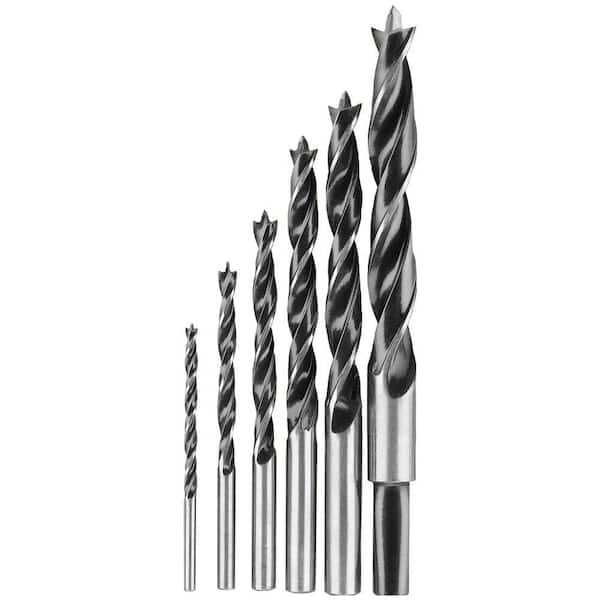
When it comes to drilling holes in metal, the size and type of hole you need will depend on the specific application. Different sizes and types of holes are required for various tasks, such as creating clearance holes, pilot holes, or threaded holes.
Before choosing a drill bit for the metal, you should determine the size of the hole needed. This will depend on the diameter of the fastener or tool you plan to use with the hole. Additionally, consider the thickness of the metal you are working with as it will affect the size of the hole.
Clearance Holes
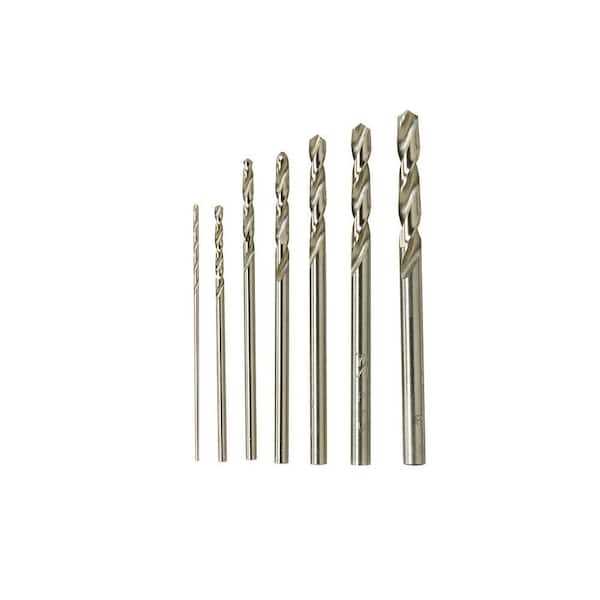
A clearance hole is a type of hole that allows for the easy passage of a screw or bolt. When drilling a clearance hole, the diameter of the hole should be slightly larger than the diameter of the fastener. This will ensure that the fastener can slide through the hole without any resistance.
For example, if you are working with a 1/4-inch diameter bolt, you may want to drill a 5/16-inch clearance hole to provide enough room for the bolt to pass through.
Pilot Holes
A pilot hole is a smaller hole that is drilled before driving a larger screw or bolt into the metal. The purpose of a pilot hole is to guide the larger fastener and prevent the metal from splitting or cracking. The size of the pilot hole will depend on the size of the fastener’s shank.
As a general rule, the diameter of the pilot hole should be slightly smaller than the diameter of the shank. For example, if you are using a 1/4-inch diameter screw, you may want to drill a 3/16-inch pilot hole.
Threaded Holes
Threaded holes are holes that are drilled and tapped to create internal threads. These holes are often used for attaching screws, bolts, or other fasteners. The size and type of threaded hole will depend on the specific thread size and pitch required.
To create a threaded hole, you will need to use a tap and die set. The tap is used to cut threads into the hole, while the die is used to create threads on the outside of a cylindrical object.
It is important to choose the correct tap size and die size that matches the thread size you require. Using the wrong size can result in a poorly fitting or non-functional thread.
| Thread Size (inches) | Recommended Drill Bit Size (inches) |
|---|---|
| 1/4-20 | 13/64 |
| 3/8-16 | 5/16 |
| 1/2-13 | 27/64 |
| 5/8-11 | 17/32 |
| 3/4-10 | 21/32 |
These are just a few examples of the recommended drill bit sizes for common thread sizes. It is important to consult a tap and die chart or reference guide for the specific thread sizes you need.
By considering the size and type of hole required for your metalworking project, you can ensure that you choose the right drill bit and achieve accurate and precise results.
Drill Bit Coatings and Their Benefits
Introduction
In the world of metalworking, selecting the right drill bit is essential for achieving precise and efficient results. One factor to consider when choosing a drill bit is the type of coating it has. Drill bit coatings provide a layer of protection and enhance the performance of the drill bit. In this article, we will explore some common drill bit coatings and the benefits they offer.
Types of Drill Bit Coatings
There are several types of coatings that can be applied to drill bits, each providing unique advantages. Here are four common types:
- Titanium Nitride (TiN) Coating: This coating is known for its durability and high heat resistance. TiN-coated drill bits have a gold-like appearance and offer increased hardness, allowing them to last longer and stay sharper throughout the drilling process. This coating is ideal for drilling through tough materials like stainless steel and cast iron.
- Black Oxide Coating: Black oxide-coated drill bits are corrosion-resistant and have a sleek black finish. This coating provides reduced friction, which helps to prevent overheating and extends the life of the drill bit. Black oxide-coated drill bits are suitable for drilling into a variety of materials, including wood, plastic, and mild steel.
- Titanium Carbonitride (TiCN) Coating: TiCN-coated drill bits are known for their hardness and resistance to wear. The combination of titanium, carbon, and nitrogen in the coating increases the drill bit’s toughness and enables it to withstand high temperatures. TiCN-coated drill bits are ideal for drilling into hardened steels, as well as materials with abrasive properties.
- Cobalt Coating: Cobalt-coated drill bits are designed for drilling hard metals like stainless steel and high-speed steel. This coating is extremely tough and can withstand high cutting temperatures. Cobalt-coated drill bits have excellent heat resistance and are less prone to chipping or breaking, resulting in extended tool life.
Benefits of Drill Bit Coatings
The various coatings applied to drill bits offer several benefits:
- Improved Durability: Coatings like TiN, TiCN, and cobalt increase the hardness and durability of drill bits, allowing them to withstand the rigors of metalworking and providing longer tool life.
- Enhanced Heat Resistance: Coatings like TiN, TiCN, and cobalt have excellent heat resistance properties, reducing the risk of overheating and extending the working life of the drill bit.
- Reduced Friction: Coatings such as black oxide and TiCN reduce friction between the drill bit and the material being drilled, resulting in smoother drilling, less heat generation, and improved chip evacuation.
- Improved Chip Evacuation: Coatings like black oxide and TiCN help to improve chip evacuation by lowering friction, preventing clogging, and allowing for more efficient drilling.
- Corrosion Resistance: Coatings such as black oxide provide corrosion resistance, preventing the drill bit from rusting and ensuring its longevity.
- Increased Versatility: With different coatings available, drill bits become more versatile and can be used for a wider range of materials and applications.
Conclusion
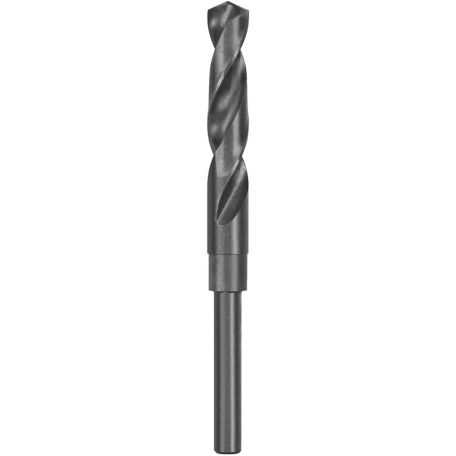
When it comes to metalworking, selecting the right drill bit coating is crucial for achieving optimal performance and longevity. The choice of coating will depend on the materials being drilled and the specific requirements of the project. By understanding the benefits of different drill bit coatings, metalworkers can make informed decisions and ensure the success of their drilling operations.
Titanium Nitride (TiN) Coating
Titanium Nitride (TiN) coating is a popular choice for drill bits used in metal working due to its exceptional hardness and heat resistance. The coating is applied to the surface of the drill bit, forming a thin layer of titanium nitride that provides multiple benefits.
Benefits of Titanium Nitride Coating:
- Increased Hardness: Titanium Nitride coating significantly increases the hardness of the drill bit, making it more resistant to wear and abrasion. This helps prolong the life of the bit, especially when drilling through harder metals.
- Improved Heat Resistance: The TiN coating acts as a barrier between the drill bit and the metal being drilled, reducing friction and heat generation. This makes the drill bit more capable of withstanding high temperatures and extends its overall longevity.
- Enhanced Lubricity: Titanium Nitride coating has a low coefficient of friction, which reduces the amount of heat generated during drilling. This results in smoother and more efficient drilling, as the bit can move through the metal with less resistance.
- Protection against Corrosion: The TiN coating provides a protective layer that helps prevent the drill bit from corroding or rusting. This is particularly beneficial when working with metals that are prone to oxidation.
Choosing a TiN Coated Drill Bit:
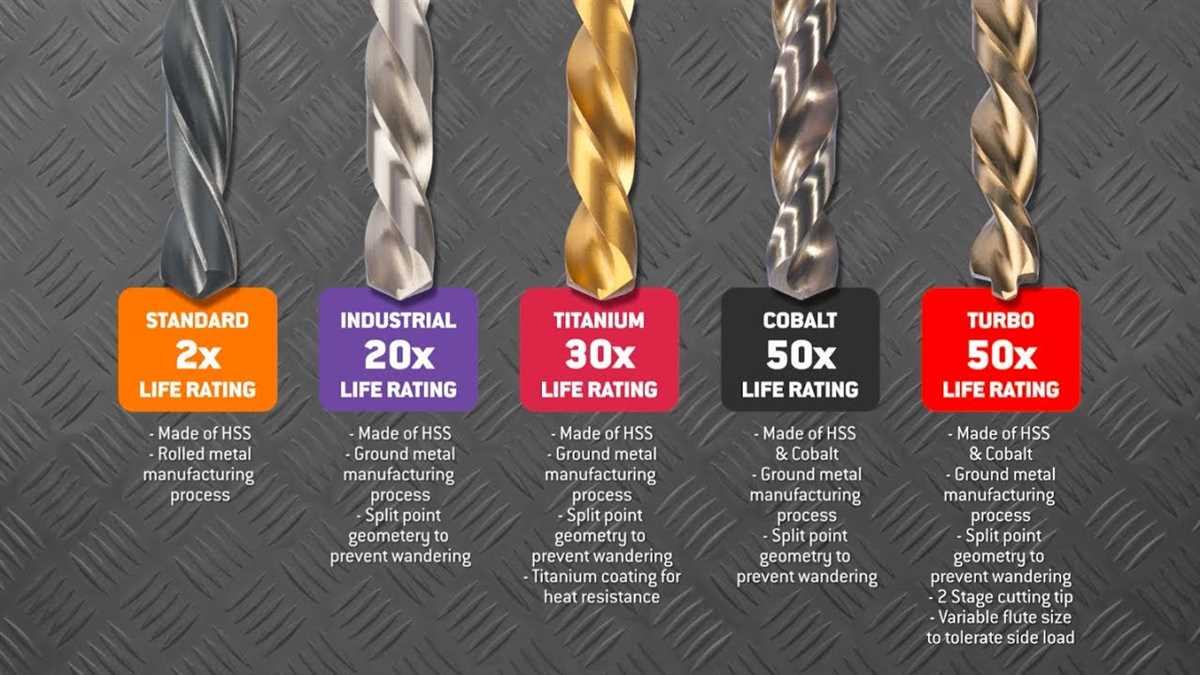
When selecting a drill bit with a Titanium Nitride coating, there are a few factors to consider:
- Type of Metal: Different TiN coated drill bits are designed for specific types of metal. Ensure that you choose a bit that is specifically engineered for the metal you will be working with.
- Size and Shank Type: Consider the size of the hole you need to drill and the type of drill you will be using (e.g., standard drill, hammer drill). Select a TiN coated drill bit that matches the desired hole size and shank type.
- Quality and Brand: It is essential to choose a high-quality drill bit from a reputable brand to ensure durability and performance. Research different brands and read reviews from other professionals to make an informed decision.
Conclusion
Titanium Nitride (TiN) coating is an excellent choice for metal working drill bits due to its enhanced hardness, heat resistance, lubricity, and corrosion protection. When choosing a TiN coated drill bit, consider factors such as the type of metal, size and shank type, and the quality of the bit. By selecting the right TiN coated drill bit, you can improve drilling efficiency and achieve better results in your metal working projects.
Cobalt Coating
The cobalt coating is a popular choice for drill bits used in metalworking. It is known for its durability and heat resistance, making it suitable for drilling into tough materials like stainless steel and cast iron.
Here are some key characteristics of cobalt-coated drill bits:
- Hardness: Cobalt coating increases the hardness of the drill bit, allowing it to maintain sharpness and resist wear even under high drilling speeds and heavy loads.
- Heat Resistance: The cobalt coating acts as a heat barrier, preventing the drill bit from overheating during prolonged use. This is particularly important for metalworking applications, as excessive heat can lead to damage or premature dulling of the bit.
- Improved Lubricity: Cobalt-coated drill bits have improved lubricity, reducing friction and heat generation during drilling. This helps in producing cleaner and more precise holes.
- Corrosion Resistance: The cobalt coating also provides protection against corrosion, increasing the lifespan of the drill bit.
It is worth noting that cobalt-coated drill bits are generally more expensive than other types of coatings. However, their superior performance and longevity make them a worthwhile investment for professionals and DIY enthusiasts who frequently work with metal.
It is important to select the appropriate cobalt-coated drill bit size based on the specific metalworking application. Using the wrong size can lead to decreased performance and potential damage to both the drill bit and the material being drilled.
Overall, cobalt-coated drill bits are an excellent choice for metalworking tasks that require high-speed drilling and resistance to heat and wear. Their durability and performance make them an essential tool for any metalworker.
FAQ:
Why is it important to choose the right drill bit for metal working?
Choosing the right drill bit for metal working is essential because using the wrong drill bit can result in damage to the material, inaccurate holes, or even personal injury.
What are the different types of drill bits available for metal working?
There are several types of drill bits suitable for metal working, including twist drill bits, step drill bits, countersink drill bits, and hole saws.
How do I determine the size of the drill bit needed for metal working?
To determine the size of the drill bit needed for metal working, you can refer to a drill bit size chart or measure the diameter of the hole you want to drill.
What factors should I consider when choosing a drill bit for metal working?
When choosing a drill bit for metal working, you should consider the type of metal you are drilling, the desired hole size, the drilling speed, and the material and coating of the drill bit itself.
Are there any special precautions I should take when drilling metal?
Yes, when drilling metal, it is important to use cutting lubricant, wear appropriate safety gear such as safety glasses and gloves, and ensure that the metal is securely clamped down to prevent movement.
Video:









